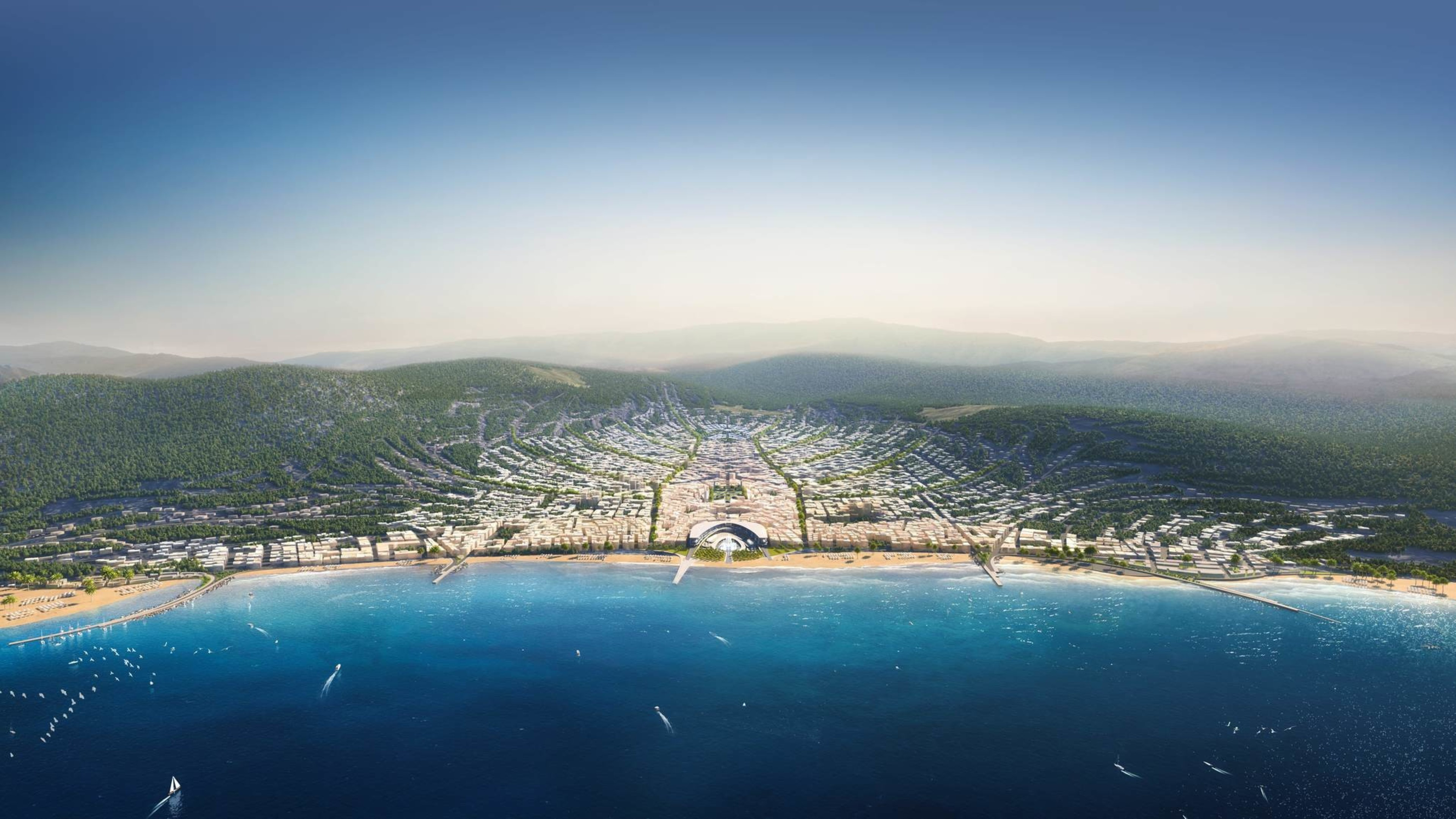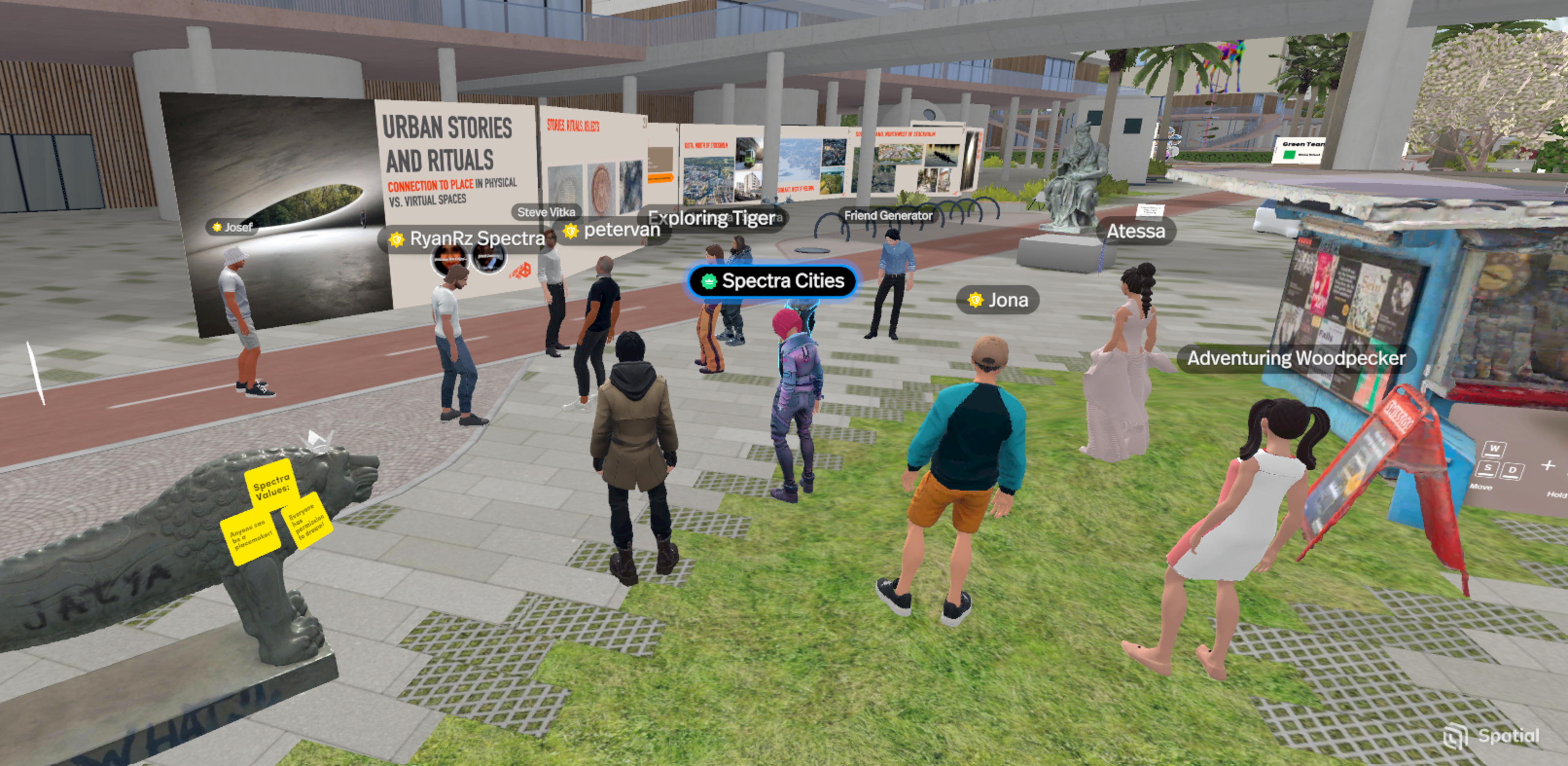California Forever isn’t the only tech-utopian city plan out there. In fact, it’s just the latest in a small—but elite—club of millionaires and billionaires investing in buying undeveloped land and building new cities, promising benefits like well-paying jobs, affordable housing, clean energy and walkable communities.
Recent news of Flannery Associates’ plans to build a new city on 55,000 acres of land in Solano County sparked excitement and skepticism. Backers include high-profile names such as Reid Hoffman, co-founder of LinkedIn; Stripe co-founders Patrick and John Collison; Laurene Powell Jobs, philanthropist and wife of the late Steve Jobs; Marc Andreessen and Chris Dixon, general partners at a16z; venture capitalist John Doerr; founders-turned-investors Daniel Gross and Nat Friedman; and venture capitalist Michael Moritz. Moritz is the chairman of The Standard.

Here’s a look at more utopias in the works:
Praxis: A Crypto Commune in the Mediterranean?
Founded in 2020 by Dryden Brown and Charlie Callinan, Praxis Society describes itself as “a community building a new city,” although it is commonly referred to as a “charter-city” startup by those in the tech industry. Inner circles also know it better as a crypto commune aiming to build in the Mediterranean, with $15 million in funding from entities and people with strong ties to Peter Thiel and crypto, including Paradigm Capital and Balaji Srinivasan. Although Praxis doesn’t mention a specific country in the Mediterranean, there have been rumblings that Greece (opens in new tab) could be the ideal host nation.
A dive into the group’s website reveals more philosophical roots of its inception. The website (opens in new tab) previously announced that it is looking for “Exceptional Men and Women Seeking More Vital Lives,” a mantra in big block letters situated in front of a dreamy, cerulean background, although the website has since been updated. There is a running throughline in the language used in marketing and branding materials (opens in new tab) that speaks of a return to nobility, which the group defines as an appreciation for beauty, rigid adherence to classical aesthetics and “having conviction in your own moral ideals.”
A promotional video for Praxis released on terrifyingangel.com (opens in new tab) is a dizzying, virtuosic 20-minute pastiche of classical and Baroque European art, interspersed with grainy footage of masses of people glued to their phones and computers, overlaid with a monotone female voice describing how the Age of Reason has failed us. The text under the video quips that viewers should “Quit Your Job, Join Praxis” and links to a resignation letter template and the Praxis website.

The video claims that society is chained to technology that promised to liberate people but has instead alienated and stripped them of agency. Throughout are references to thinkers like Nietzsche, Hegel, Aurelius and Rilke. One snarky moment occurs when the narrator commands viewers to “Go home, lie in a dark room, listen to Handel and cry,” as opposed to numbing their brains with apps like TikTok.
There is undeniably a moral stake in the building of this new city, as the voice of the video’s narrator asserts. It is dripping in the opaque and frequent philosophical quotes, the search to return to classical ideals and the imperative to return to an “order and a noble hierarchy.”
The far-right book Bronze Age Mindset is one of the 11 titles on the suggested reading list for new employees, according to reporting (opens in new tab) from Mother Jones.
The logistical details for the city are bare. The company is planning to pick its host country later this year; the group says it wants about 10,000 acres of land to build its city and move in the first 10,000 residents. The emphasis on a city in the Mediterranean is not a fluke; Brown has said in interviews (opens in new tab) that natural beauty and proximity to a beach are necessary to maximize the productivity of residents.
A City Building Cities: Spectra Cities
Spectra Cities is another city-making project. The project brands itself as an open-source community where builders can explore designs for real-world applications using digital tools such as virtual reality and 3D modeling software. The idea is that this online community will not only be an incubator for the future city Spectra plans to build, but also as a forum to exchange ideas about urbanism and design.
Spectra Studios LLC, the company at the helm of Spectra Cities, was founded in June 2021 by Ryan Rzepecki. Rzepecki previously founded the electric-bike company Jump, which was sold to Uber in 2018 for $200 million.
While the company right now is primarily a design studio and online community consisting of people interested in city-making, it has ambitions of creating a new city with over a million residents. The city would incorporate blockchain technology to make bottom-up, democratic decisions and experiment with city designs in virtual and mixed reality, according to the company’s white paper (opens in new tab).

Neom, Saudi Arabia
The idea of developing a utopian city, optimized with cutting-edge technology, is an idea that has also been adopted by one rich nation. Notably, Saudi Arabia has been working toward building the Line, a megaproject city spanning more than 10,000 square miles. Neom is both the name of the developer and the name of the urban area the Line will be built in.

Neom’s plans include a floating industrial complex, a global trade hub and a linear city plan—dubbed The Line—consisting of one continuous structure with a glass mirror exterior. It is supposed to be easily walkable, with the capacity for its 9 million residents to access all basic services within a five-minute walk.
“The Line will tackle the challenges facing humanity in urban life today and will shine a light on alternative ways to live,” Crown Prince and Neom Chairman Mohammed bin Salman Al Saud said on the project’s website. “We cannot ignore the livability and environmental crises facing our world’s cities, and Neom is at the forefront of delivering new and imaginative solutions to address these issues.”
Neom is already being built, and the first destinations will be completed next year, according to its website. The first modules of The Line are expected to be completed in 2026.
Telosa, the Equitable City
Billionaire entrepreneur Marc Lore, CEO of Jet.com, who is also largely credited with Walmart’s e-commerce success, announced plans in September 2021 for a utopian city named Telosa to be built on land in the Appalachian region or an undisclosed location in America’s West.
The city aims to have over 5 million residents by 2050 and will run on a principle of “equitism (opens in new tab),” in which each citizen will be able to buy land to develop and own any homes or buildings built on it. All residents would share ownership of the land through a collective endowment model in which income from appreciating land value will be invested back into the community to fund social services.

“It’s not about leading with the best technology, and history has shown that technology alone doesn’t result in a thriving and flourishing city. It’s about leading with people and community,” said a spokesperson from Telosa.
Telosa has similar goals as Praxis and Neom, including running the city almost entirely on renewable energy, building towering structures and designing an extremely walkable city where all necessary services are no more than a 15-minute walk away.
